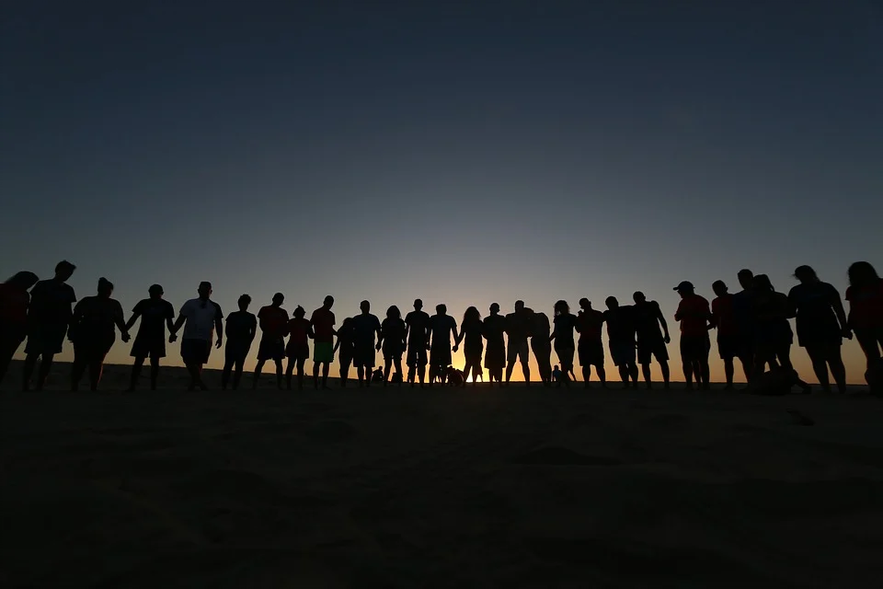Issue
Advocacy for economic, social and cultural (ESCR) rights requires concerted effort by those advocating for their respect, protection and fulfilment. Meaningful human rights impact is not possible if it is not informed from the perspectives of marginalised groups and communities and progressively interpreted. For this to happen, advocacy efforts must be focused on impact at the level of normative development, that reflects local realities and is aimed at preventing, ending or remedying human rights violations.
Local advocates and victims of economic, social and cultural (ESC) rights violations (and their advocates), however, are often far removed from international human rights mechanisms and not able to directly contribute to shaping ESC rights standards.
Our Approach
By building respectful relationships with local advocates and victims of ESC rights violations and connecting them with international mechanisms, we work to provide space for our partners to directly contribute to shaping ESC rights standards.
We believe in amplifying the voices of local advocates by leveraging international law and mechanisms and informing the content, meaning, and interpretation of international human rights norms from the perspectives of marginalised groups and communities. As such, this two-way exchange of information and advocacy results both in specific change at the local level and structural change within the international human rights normative framework, and a more intentional and profound symbiosis between the two.
Partnerships And Networks
We work with partners, globally and locally, to further social and economic justice and catalyse change from the local to the global, back to the local.
GI-ESCR's work is grounded in partnerships. We believe that effective advocacy for economic, social and cultural (ESC) rights requires building collective power and breaking down silos between disciplines, types of organisations, and working cultures. Partnerships are at the core of GI-ESCR’s methodology and theory of change and to a world that increasingly enjoys human rights.
Together with organisations, advocates, human rights defenders, social movements and grassroot communities at local, national, regional and international levels, we monitor and expose ESC rights violations and inequalities, craft advocacy strategies, mobilise constituencies to challenge vested interests, abuses of power and social injustices. We also connect local advocates and victims of ESC rights violations with national, regional and international human rights mechanisms and policymakers, so that they can directly contribute to shaping ESC rights standards and narratives.
We, for instance, facilitated the strategic engagement of national partners with UN human rights mechanisms and regional mechanisms such as the African Commission on Human and Peoples’ Rights in order to set human rights standards and support local, grassroot mobilising work.
We also brought together organisations, trade unions and movements from the development, tax justice, development finance, and human rights spheres, as well as UN human rights Special Procedures mandate holders to discuss privatisation and renewed strategies for the public provision of services related to ESC rights such as health, education, water sanitation and housing.
We worked together with organisations demanding housing rights in the context of climate change, urbanisation and environmental degradation, in El Salvador, Cameroon, the Philippines, Peru, Nigeria and Chile. We raised awareness about ground-level experiences and highlighted how community-led initiatives can protect communities and build their resilience to both the climate and environmental crises and pandemics.
We strategised with climate change litigators across the world who are bringing human rights-based claims in national courts to challenge States’ inaction on climate change. Together we identified key concepts, themes and countries where international human rights norm development and State monitoring can support national climate campaign objectives and undertook legal advocacy to support those objectives, for instance, pressing for human rights scrutiny of Japan’s funding of coal-fired power plants in other countries.
Over the years, we have engaged actively in several networks, notably:
ESCR-Net, as a member of
the Steering Committees of the
Strategic Litigation Working Group
Women and ESC Rights Working Group
Advisory Group of the Networkwide Project on Environment and ESCR
the Economic Justice Working Group
Bringing Human Rights Home, as a member of the ESC Rights Working Group
ETO Consortium, as a member of the Steering Committee
Geneva Climate Change Consultation Group
Geneva Gender Network
Group of Friends of Economic, Social and Cultural Rights (ESCR) in Geneva
The NGO Network on the UN Human Rights Treaty Bodies (TB-Net )
Privatisation in Education and Human Rights Consortium
Global Coalition for Social Protection Floors
Réseau francophone contre la marchandisation de l’éducation
Nuevo Pacto Social (Chile)
Climate Justice Network (Mexico)
People’s Vaccine Alliance (PVA)


